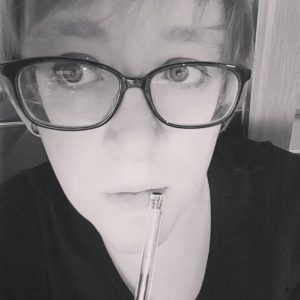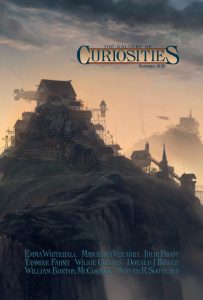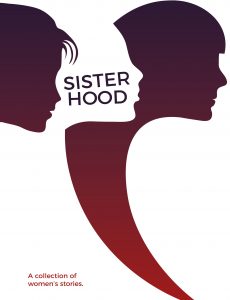The humble author of your favorite blog has done it again. I got to interview author Emma Whitehall, another writer who has a story appearing in The Gallery of Curiosities, Issue #3.

Emma Whitehall is a writer and editor based in the North East of England. She has been published in the UK, USA, Ireland and Mexico, and has been longlisted for the Bath Novella-in-Flash Award and shortlisted for the Fish Flash Fiction Prize and the New Millennium Writings Award. She is fascinated by the fantasy genre, and uses it to explore themes of love, grief, and transformation. She recently edited Sisterhood, a collection of women’s fiction, with all proceeds going to Newcastle Women’s Aid. Her Steampunk Novella-in-Flash, Clockwork Magpies, is looking for a new home with a publisher.
And now, the interview:
Poseidon’s Scribe: How did you get started writing? What prompted you?
Emma Whitehall: I’ve been writing, in some form, my whole life—but it was really in college where I began to play around with genre fiction. I started writing scripts (I was a budding actor), which evolved into monologues that I’d perform at local open mic nights, which in turn transformed into short stories that were written more for the page than the stage.
P.S.: Who are some of your influences? What are a few of your favorite books?
E.W.: I think my biggest influence is John Ajvide Lindqvist, author of Let The Right One In. He blends folklore together with themes of love and death in a way I find really inspiring. I used to primarily read horror, but now I branch out—I love YA, fantasy, and a smattering of commercial fiction, too. I think it’s really useful for a writer to read as widely as they can—the wider your scope, the more you have to draw on in your own work.
 P.S.: Your story, “The Rat and the Frog” appears in The Gallery of Curiosities, Summer 2018, issue #3. Please describe your protagonist, Ida, the Rat Prince. Any plans to write more stories involving that character?
P.S.: Your story, “The Rat and the Frog” appears in The Gallery of Curiosities, Summer 2018, issue #3. Please describe your protagonist, Ida, the Rat Prince. Any plans to write more stories involving that character?
E.W.: Ida is a maid. She is also the master cat burglar, The Rat Prince. She hides in plain sight—The Rat Prince is assumed by everyone in the city to be a man, simply because no girl, and especially no maid, could possibly be as clever and cunning and ruthless as she is. I love that, with Ida, I can play with themes of identity; her alter ego, in her mind, is her maid role, not The Rat Prince.
Ida is also part of a much larger world. Her city is the home to my short story collection, Clockwork Magpies, which is looking for a new home as we speak. Ida and Lucinda make appearances, as do a whole host of characters you are yet to meet…
P.S.: Your website states that you specialize in blending the supernatural and the sensual. Can you please give a couple of examples, from your stories, of what this means?
E.W.: My favourite things to write about are emotions and relationships. I love concocting lush, beautiful scenarios for my characters to get lost in! As for supernatural, I find that genre fiction is a fascinating lens to help a reader view those emotions and relationships in a new, exciting way—for example, “The Rat and the Frog” is really just a story about a girl who refuses to be defined by her day job. That’s a theme that is very close to my heart (I worked in retail for a long time). It’s just written with a Steampunk lens that gives the story a new twist that having Ida as a modern girl working in a shop wouldn’t have.
P.S.: You have written (and had published) several nice reviews of horror novels. You’ve also written some horror short stories yourself. What appeals to you about that genre?
E.W.: It’s partly that idea of the lens. One of the books I reviewed, Hunter Shea’s We Are Always Watching, is a terrifying story of home invasion—but it’s also a story about a fractured family forced to live in each other’s pockets. But my love of the genre is also because I love a good monster story—I still have this little dream of writing the story that redefines the Werewolf genre…
P.S.: In what way is your fiction different from that of other authors?
E.W.: No one is truly original—we are all magpies, taking parts from other works we love to help build our own. But, for right now, I am not writing stories with huge, world-changing arcs, or Big Bads to fight. I prefer to write very small, personal stories—Ida’s adventures in “The Rat and the Frog” won’t impact on anyone outside of the main characters—and, for some of them, not even that. But, if I’ve done my job correctly, we’ve looked into the mind of a fascinating, funny, intelligent person, and come away from the story feeling as if we know her.
 P.S.: Recently, you edited Sisterhood, a collection of stories exploring female friendship. Did you find the editing experience rewarding, and what should readers expect from this book?
P.S.: Recently, you edited Sisterhood, a collection of stories exploring female friendship. Did you find the editing experience rewarding, and what should readers expect from this book?
E.W.: Sisterhood is my pride and joy. It’s a truly grassroots feat of publishing, where everything from the editing to the PR to the artwork was sourced and organized by the contributors—who also wrote ten wonderful, diverse, lovingly crafted pieces of short fiction. We have road trips with ghosts, noir fiction, thoughtful pieces on the loss of a friendship, rallying cries for solidarity and protest…and all the money raised goes to Newcastle Women’s Aid, who help survivors of domestic abuse get back on their feet. We raised £355 from our launch alone!
P.S.: What is your current work in progress? Would you mind telling us a little about it?
E.W.: Right now, I’m brushing up Ida’s world, ready to show it off to publishers. But there’s always that werewolf story on the backburner…
Poseidon’s Scribe: What advice can you offer aspiring writers?
Emma Whitehall: Read and see and feel as much as you can. Don’t be afraid to play with your work—try something new! Be humble and open to edits. And it doesn’t matter if the only person who has ever read your work is yourself: you are a writer. Wear that badge with pride.
Thanks, Emma.
Readers, you can find more about Emma Whitehall at her website, on Twitter, at her Amazon page or on Facebook.
Poseidon’s Scribe
